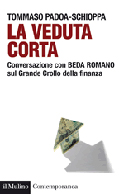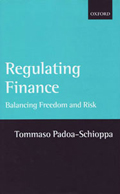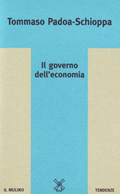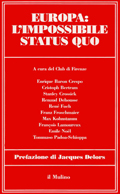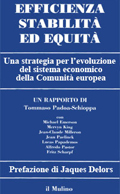
Trichet Faces Growing Criticism in Europe Crisis
by Jack Ewing and Steven Erlanger
FRANKFURT — For the first time in a long life of technocratic excellence, the president of the European Central Bank, Jean-Claude Trichet, finds both his judgment and his credibility in question.
The crisis of the euro and the panic of the markets have pushed Mr. Trichet, 67, who has run the bank since 2003, into bending the rules, compromising his principles and appearing to give way to political pressure from panicked national leaders. In doing so, he may have saved the euro but lost part of his reputation for probity.
“The E.C.B. lost its virginity,” said Marko Skreb, a former governor of the central bank in Croatia. “The last couple of days have clearly indicated that we live in a new world.”
In the last few weeks, as the bank has taken a central role in Europe’s debt crisis, Mr. Trichet has reversed himself on buying sovereign bonds from weak euro zone countries; agreed to keep accepting Greek bonds, however downgraded, as loan collateral; and opened himself up to charges that he has weakened the bank’s commitment to low inflation. He is being second-guessed from Athens to London and accused of badly misreading the markets.
During an interview in his office on the 35th floor of the bank headquarters here, Mr. Trichet, unfailingly courteous and urbane, showed no sign of being rattled by the criticism, though he was aware of it, and aware that his every word was parsed and second-guessed by a small army of analysts, economists and journalists.
“When you have the great honor to have enormous responsibility,” he said, “you have to accept that all of your decisions can be criticized.”
The euro’s continuing problems — and the bank’s — were evident again on Thursday, as markets in the United States, Europe and Asia continued to fall because of worries about whether the European debt crisis was really under control.
In the early hours of May 10, European leaders cobbled together a nearly $1 trillion deal meant to stun bond investors who, after Greece was driven to the brink of default, were hungrily eyeing attacks on Portugal and even Spain.
A few days before, on May 6, Mr. Trichet had told reporters that the bank was not even considering buying bonds from the weakest governments of the shaken euro zone. On May 7, markets tumbled. But a few hours after the leaders adjourned — at 3:15 a.m. on May 10, and by all accounts under severe pressure from President Nicolas Sarkozy of France and other European leaders — Mr. Trichet and the bank board members reversed themselves.
Mr. Trichet’s market-shaking change was controversial enough. But many analysts thought that he had badly misread the markets — and Europe’s politics — in the first place, and that he and the bank, which controls the euro, were too far behind the curve.
In Germany, with its historic dread of inflation, the intervention in bond markets was met with something approaching outrage. One member of Parliament called on Mr. Trichet to resign.
Axel A. Weber, president of Germany’s Bundesbank and a member of the European Central Bank’s Governing Council, distanced himself from the bond purchases in a rare display of internal discord. It was particularly impolite, given Mr. Weber’s ambition, supported by Chancellor Angela Merkel, to succeed Mr. Trichet after his term expires in 2011.
Jürgen von Hagen, an economist at the University of Bonn and seasoned central bank watcher, sounded almost betrayed by Mr. Trichet, who had made controlling inflation his watchword;
as governor of the Bank of France in the 1990s, he made his name standing up to free-spending French politicians.
“I think he’s been a good president, particularly throughout the financial crisis,” Mr. von Hagen said before adding, “What we have seen in the last six weeks is terribly disappointing.”
Mr. Trichet has plenty of supporters, even among the inflation-wary Germans. Joschka Fischer, a former foreign minister, came to Mr. Trichet’s defense, praising him for acting intelligently in a crisis.
“We Germans, we love principles,” he said. “Principles are fine, but in the moment of crisis even George W. Bush transformed himself into an American Lenin and nearly nationalized banking. “When the house is on fire, you don’t think of principles, but containing the fire. That’s the situation we’re in now.”
Whatever the merits of the argument, one thing is clear to outsiders: Mr. Trichet’s willingness to bend or break the rules and buy government
bonds — aimed at halting a potentially catastrophic sell-off — served as final confirmation that the central bank had stepped once and for all beyond its narrow founding mission solely as a bulwark against inflation.
The European Central Bank now seems to have been pushed into the much larger role of guardian of financial stability in the 16 countries that belong to the euro area, with implications for all the 27 nations of the European Union.
The bank has crossed a Rubicon with
the bond purchases, which some economists argue could spur inflation by increasing the money supply.
Mr. Trichet and the central bank’s board members, who voted by telephone and not unanimously, denied any connection between the bond purchases and the nearly $1 trillion rescue package. But the decisions were less than two hours apart, and they had a reinforcing effect.
Mr. Trichet has often had combative relations with political leaders. In 2004, for example, he resisted pressure from Gerhard Schröder, then chancellor of Germany, to cut interest rates and loosen the European Union’s limits on government debt.
Events have vindicated the bank’s position then, Mr. Trichet said. The implication is that he expects events to vindicate the most recent decisions as well.
Still, the bank’s abrupt shift over bonds struck even Mr. Trichet’s admirers as disturbingly out of character. To some it seemed that the man who stood up to the former French president, Jacques Chirac, had bowed to pressure from European Union leaders, who had mismanaged their budgets for years and caused the crisis in the first place.
“Buying debt on the secondary market was a bad thing to do, and
suddenly they do it,” said Paul
De Grauwe, an economist at the University of Leuven in Belgium. “It’s very bad communication.”
Mr. Trichet has said that the Governing Council was always aware that markets might turn their attention from Greece’s dire public finances to other euro countries. But he couches the bank’s recent actions in the language of the bank’s anti-inflation mandate, rather than any attempt to serve as custodian of the European economy.
The nonconventional moves, he said, were necessary to “preserve the bank’s ability to have an effective transmission mechanism of its monetary policy and to carry out its prime mandate of holding inflation below 2 percent.”
“We have not changed our monetary policy stance,” he said. He argued that the bank would take deposits to “sterilize,” or offset, its purchase of sovereign bonds and thereby eliminate the inflationary effect.
While conceding that buying government bonds was new for the central bank, Mr. Trichet portrayed the move as consistent with other extraordinary steps the bank had taken since the global financial crisis began building in 2007.
In general, he and the bank have been praised for their actions in the first part of the financial crisis to keep banks lending, providing unlimited short-term loans at 1 percent interest to strapped banks and buying covered bonds — low-risk paper issued by banks and tied to mortgages.
But with Greece nearing default and the whole euro project at risk, Mr. Trichet’s defenders say that it would have been a much bigger mistake for him to stubbornly stick to his previous statements.
“Only dumb people never change their minds,” said Tommaso Padoa-Schioppa, a former member of the bank’s Governing Council. “It was a change of circumstances which required a different posture. It seems to me it’s a dogmatic, if not pedantic, view of things to say that this entails a loss of credibility.”
Mr. Trichet, an engineer and mathematician by training, graduated near the top of his class at the École Nationale d’Administration, the elite and demanding school that shapes France’s top civil servants.
Jean-Paul Huchon, a classmate, said of Mr. Trichet: “He is a man who lives in abstraction, who lives in numbers.”
“He thinks that what is rational is automatically understood,” added Mr. Huchon, who is now president of the regional council of the Île-de-France, composed mostly of the Paris metropolitan area. That trait has left Mr. Trichet baffled by those who disagree with him on policy matters.
Yet Mr. Trichet, who is careful about revealing details of his personal life, is also a lover of poetry. Mr. Huchon said he had seen Mr. Trichet recite long passages of French poetry by heart — an observation that Mr. Trichet confirmed by reciting several verses from “Cyrano de Bergerac.”
Mr. Trichet shows another side of his personality, however, when discussing the misbehavior of Greece, which has long lied to its European colleagues about the real state of its economy.
“We share a destiny in common,” Mr. Trichet said. “Now it’s clear in the eyes of all public opinion and governments that this is very serious, and the fact that one particular country behaved very improperly has an impact on the full body, the full college. That is why proper surveillance by peers is so essential.”
He called for stricter financial discipline, backed up by significant sanctions.
But as powerful as he is, Mr. Trichet needs the active support and initiative of national leaders to push the countries of the euro zone to impose the self-discipline needed to get through the crisis.
“The facts have proved him right,” said Colette Neuville, a shareholder advocate who is a member of the European Commission’s Corporate Governance Forum. But, she added, “You can’t be right all alone. One has the impression that he’s arrived at the limit of what he can do with the power he’s been given.”




